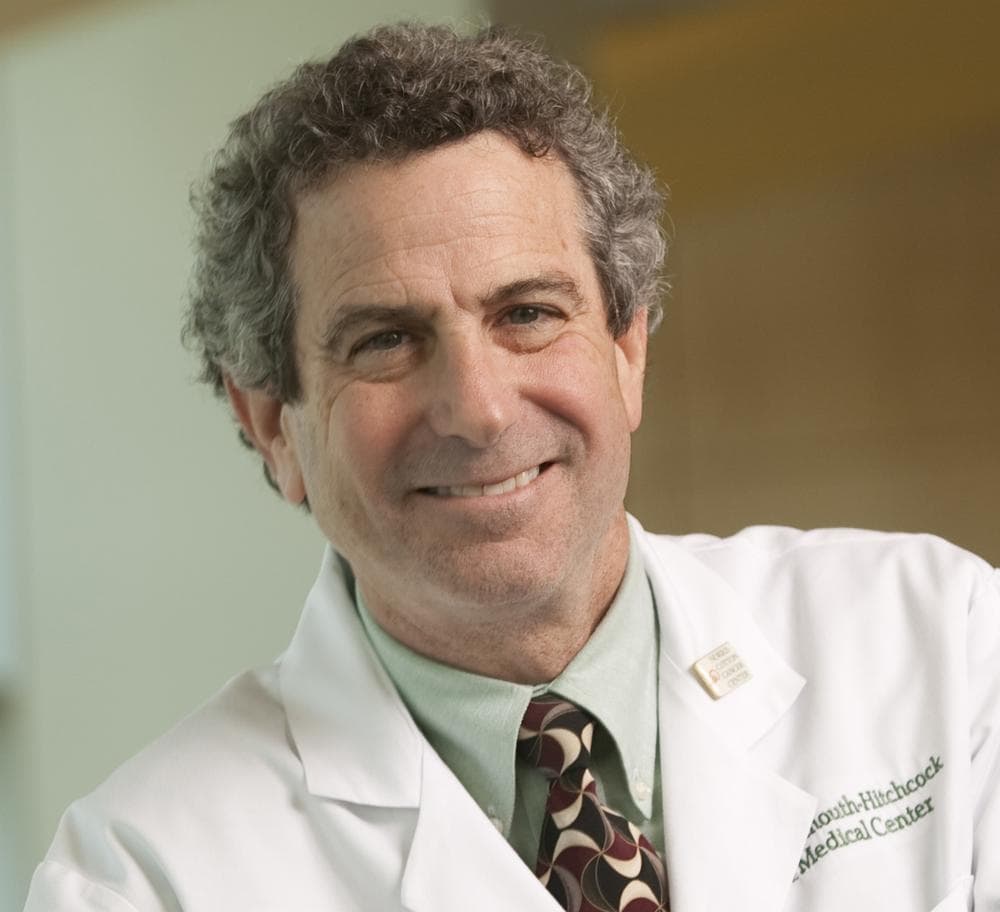Advertisement
Why A Leading End-Of-Life Specialist Opposes Assisted Suicide
Dr. Ira Byock, considered one of the country’s leading palliative care specialists, is the chief of palliative care at Dartmouth Hitchcock Medical Center and author most recently of “The Best Care Possible.” He opposes Question 2, the Massachusetts ballot question that would allow terminally ill patients to request prescriptions for life-ending drugs, and here he explains why:
My take is as a doctor who has been caring for seriously ill people for over 30 years. I’m also a lifelong political progressive. But I have a different perspective on physician-assisted suicide than many liberal Americans and many of the voters in Massachusetts.

One thing on which we all agree is that there is a true national crisis that surrounds the way Americans are dying. The folks who are trying to legalize physician-assisted suicide are well-intended but I think they’re making a serious error. The crisis that surrounds our way of dying is a crisis of our own making: A chilling admixture of excessive medical treatment on one hand and near social abandonment on the other. While doctors are not the cause of this, we’re not entirely free of blame either.
Medical education is deficient not only in instruction on pain but on communicating with patients, discussing diagnoses, helping patients and families sort through their business and reach a satisfying sense of life completion. Many of the people I meet who are facing the end of life are suffering not just from their physical conditions but from the indignities our health system imposes: The inability to pay medical bills, watching family savings dwindle...
[module align="left" width="half" type="pull-quote"]
'It will quite literally be easier to get a lethal prescription in Massachusetts than to have hospice care through the end of your life.'
[/module]I don’t practice in Massachusetts but I’m appalled that some of the prominent spokespeople in favor of physician-assisted suicide are physicians who have no experience in caring for dying patients. Some are part of Big Medicine, the medical-industrial complex which takes care of us really well as long as it can bill us, but doesn’t have much use for us when our conditions become incurable and billing opportunities wane.
Proponents of Question 2 allege that those of us who are physicians who oppose assisted suicide are somehow protecting our own sensibilities and the profession. They have turned our stance on its head. The prescription against physicians killing patients has been in place since the beginning of the medical profession as a progressive value to protect vulnerable patients.
Physicians always have more power than patients and once it is legal, physicians will agree to write a lethal prescription when they cannot imagine anything else to do for a patient. But I know from 34 years of clinical experience that the limitation is within the physician – in his or her ability to imagine what else we might do. Perhaps the physician is undertrained in end-of-life care, or exhausted and spent, or has had a fight with a spouse or is simply over his or her head. That’s why we work in teams. That’s why we have professional principles that stop us from doing things that violate medical ethics.
Patient vulnerability is ever more important in this time when our resources are stretched and strained, and when people are suffering from system-imposed, socially-based stresses. In fact, after the Question 2 proponents get their way, we will still not have addressed any of the sources of suffering that plague dying Americans.
We’ll still require terminally ill patients to give up treatment for their disease to get Medicare to pay for their hospice care. In 2012, 14% of hospice patients in Massachusetts were eventually discharged from hospice care. Is there anything in Question 2 that would guarantee continuance of hospice care for people who get lethal prescriptions? No. It will quite literally be easier to get a lethal prescription in Massachusetts than to have hospice care through the end of your life.
We’ll still be teaching more obstetrics than hospice and palliative care to every medical student. We’ll still be graduating more doctors who have never been trained to have these conversations or in ways to help people sort through their unfinished business. But, those doctors will now have the authority to write lethal prescriptions.
This does not seem like progress to me.
This program aired on October 29, 2012. The audio for this program is not available.